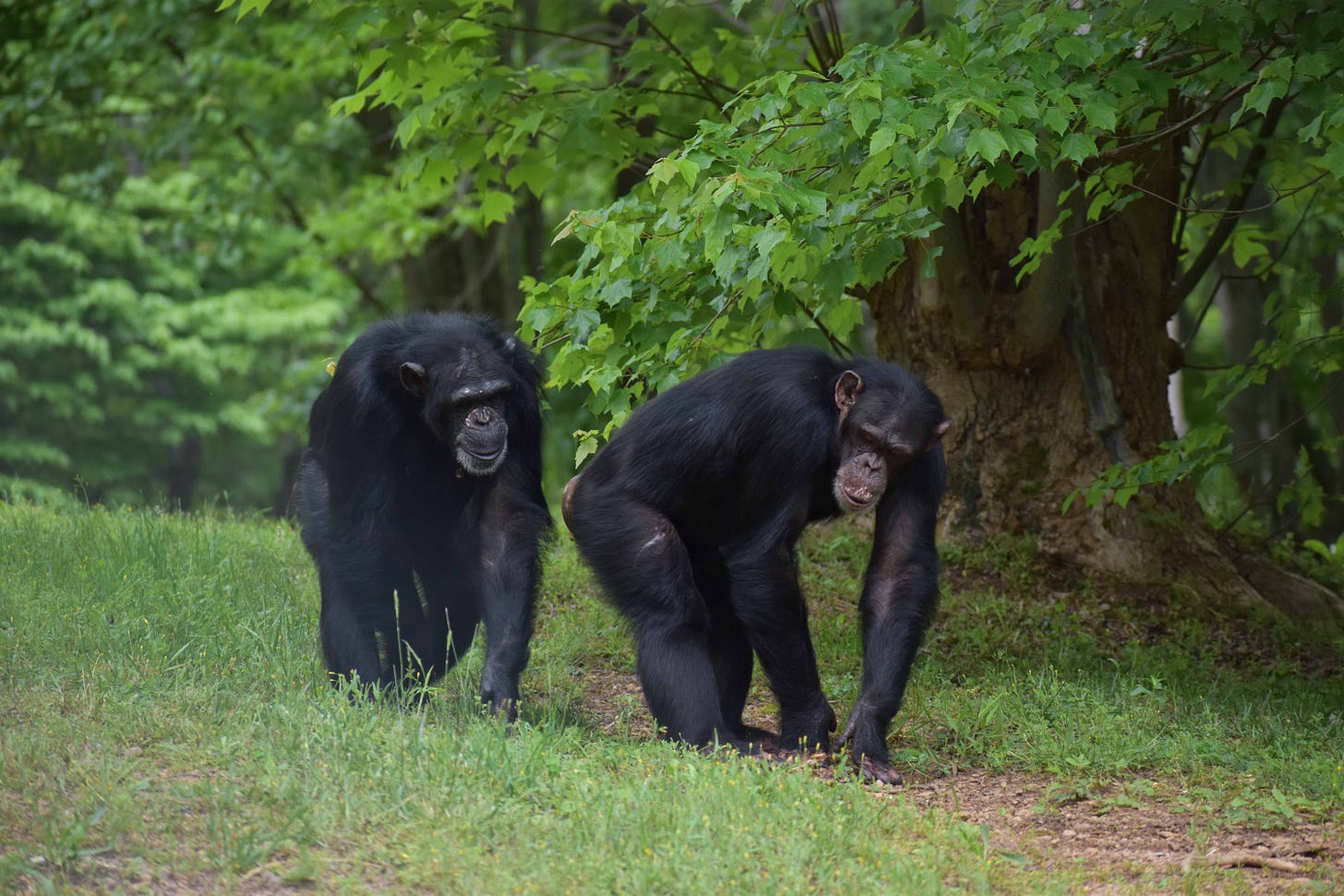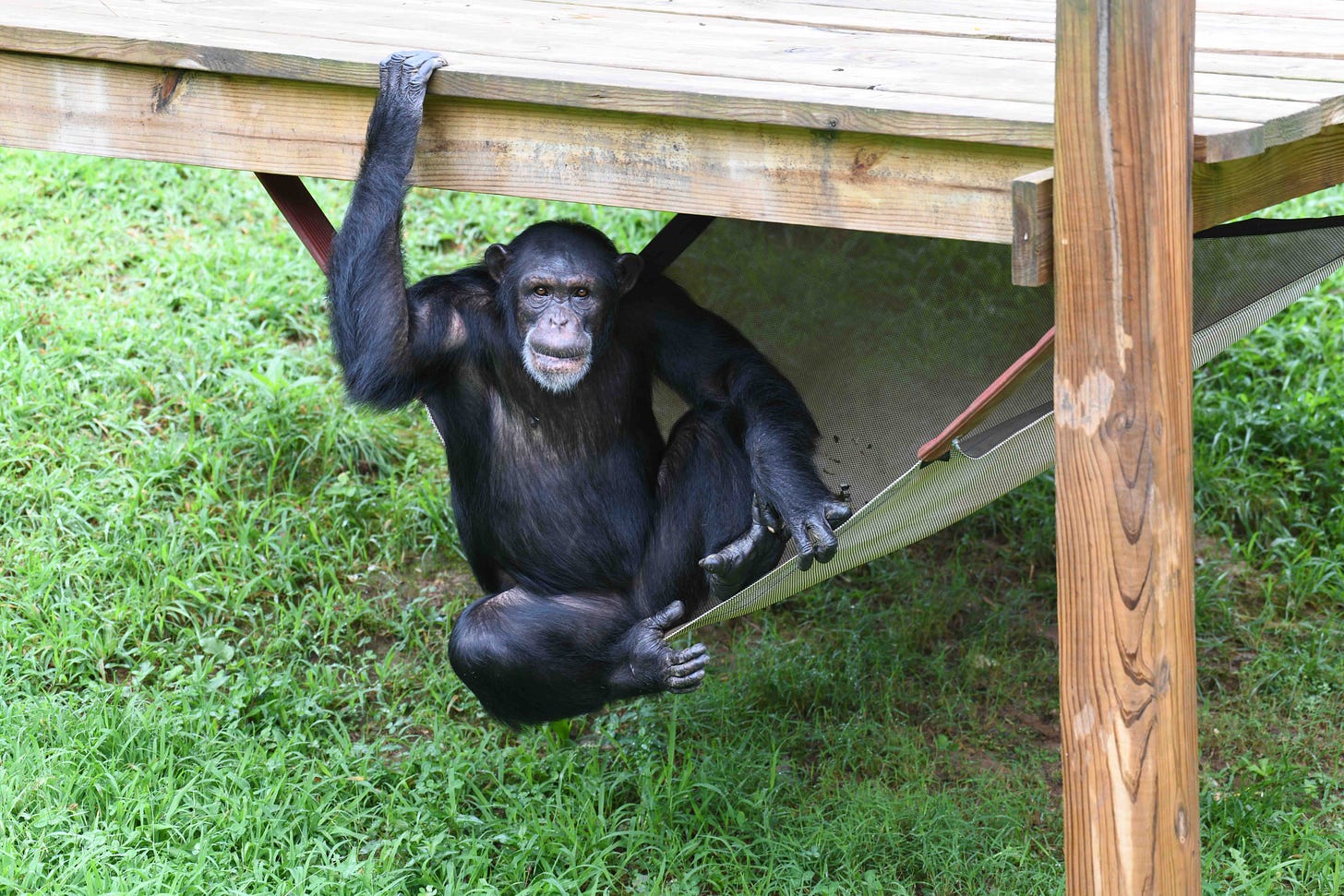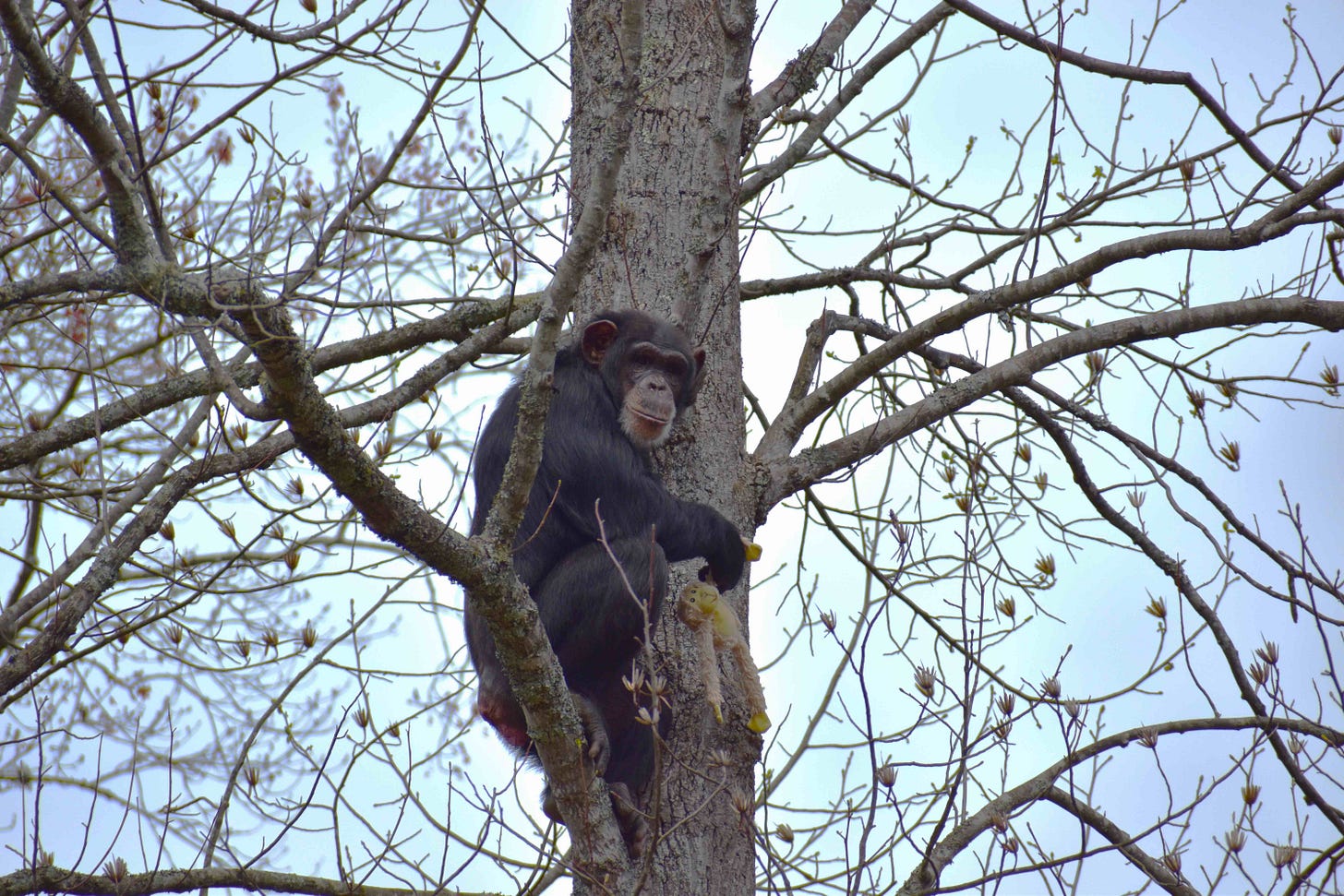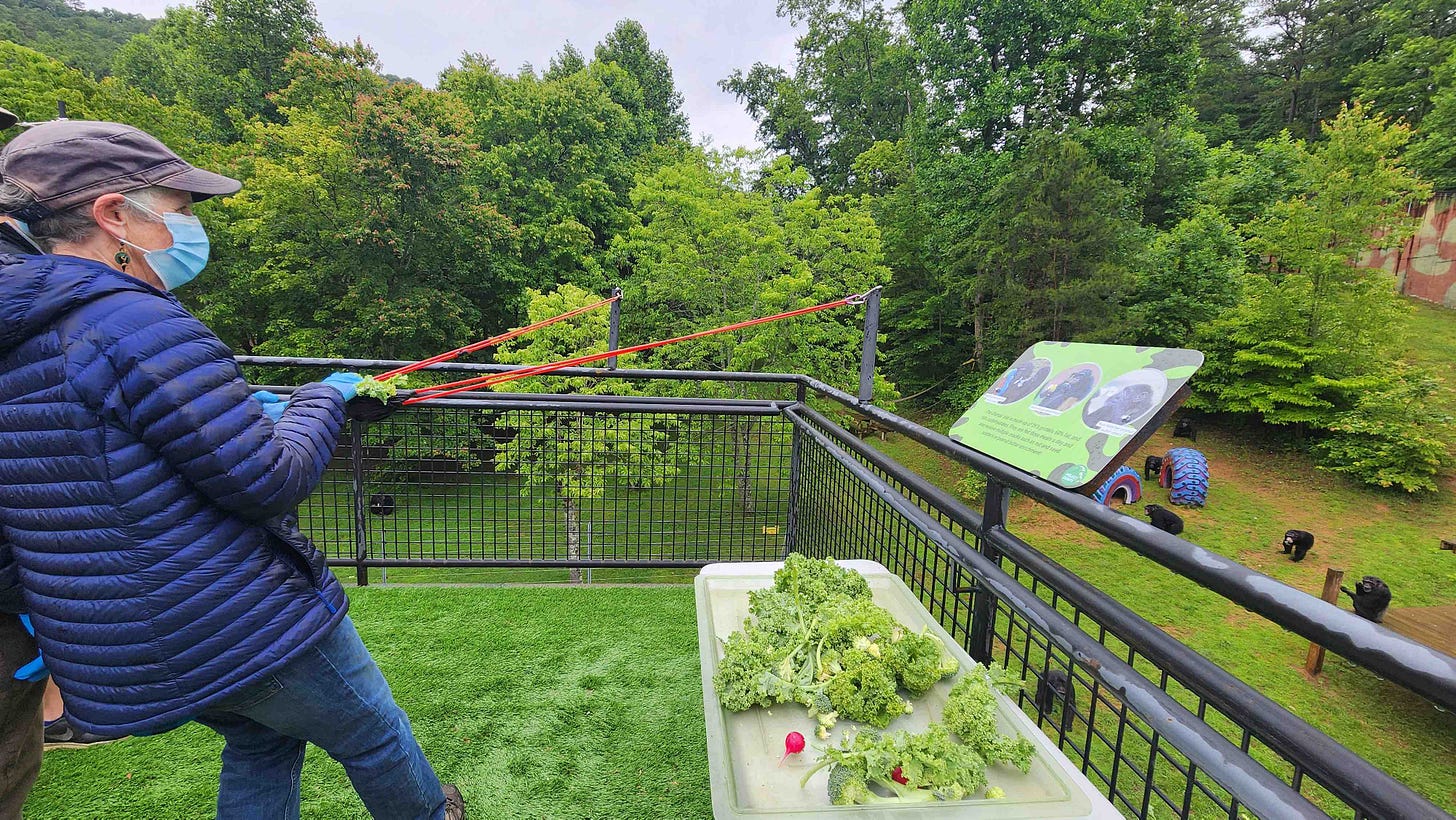Project Chimps, Part 1
A sanctuary nestled in Georgia’s Blue Ridge Mountains welcomes retired research chimpanzees
Note to readers: Our upgraded digital subscribers received part two of this story: an account from one of Project Chimps’ caretakers who shares what it’s like to work with these lovable creatures.
Project Chimps
Written by Elizabeth Poland Shugg
Photos provided by Project Chimps
Just north of Morganton, Georgia, 95 chimpanzees coexist in the center of a 236-acre sanctuary. Villas, climbing structures, fields, and a koi pond provide them with shelter, entertainment, and tranquility. They socialize, explore, and dine together surrounded by the magnificence of Georgia’s Blue Ridge Mountains.
These gentle primates once worked in research labs as part of breeding programs, or with private institutions that conducted various invasive or noninvasive studies. Rusty, the oldest, turns forty in April. He spent thirty-four years in a research lab. Kivuli, the youngest, turned fourteen in January, fortunate to escape decades of lab work. Hercules and Leo were used in locomotion studies, which required them to walk upright with electrodes embedded in their muscles.
But those days are over. Project Chimps is their ticket to a retirement refuge where caregivers replace researchers. “The best part about being a caregiver is the daily interaction I have with the chimps, where I primarily work on gaining their trust,” says Miranda Ramirez, a former intern. “There are so many ways to connect with them while serving, shifting, training, and playing with them. Every chimp is so unique to specific circumstances.”
At the Project Chimps sanctuary, up to 200 chimps can roam freely within the sanctuary’s 6-acre Peachtree Habitat, a captive environment offering the comfort of a predictable routine. Breakfast is at 8 a.m., lunch is at noon, and dinner is at 4 p.m. The chimps dine primarily on root vegetables and leafy greens. Breakfast and dinner are served in the villas, but staff scatter lunch around the habitat to satiate the chimps’ foraging instincts.
Because chimpanzees are the closest living relatives to humans they share many of our characteristics: empathy, intelligence, compassion, resilience. They’re capable of experiencing a wide range of emotions and have highly evolved problem-solving skills. Like humans, they respect their elders and love to play.
Caregiver India Sloan, who also started as an intern, says chimps’ human-like characteristics make them seem more like peers. “I can tell without looking when Thomas is grooming someone, or when someone upsets Muttie,” she says. “I can figure out how Nyia—the pickiest of eaters—would like her produce served to her. Will it be rolled up in a paper bag burrito, or sliced and dropped in the food hopper? I know when Lizzy wants a stick she will groom my arms or try to peek in my pockets. This isn’t just me. All our caregivers know the ins and outs of the groups they work with like they know their own friends.”
Caregiver Lauren Jenkins knows how to read the chimps’ movements and moods. “I love walking in and saying good morning and getting head nods, which is like a chimp greeting,” she says. “I love when they initiate play and you get a few minutes of connection with them playing chase or tickle stick.”
The biggest challenge? Picking a favorite. “Every chimp is so different,” Jenkins says. “When people ask if I have a favorite chimp, I always say that I don’t have a favorite but I have a favorite thing about each one.”
Hiking and Hosting
A 1-mile hiking trail surrounds the habitat offering views of the Peachtree Habitat, koi pond, and Project Harvest, a garden where food for the chimps is grown. If you don’t see the chimps, you’ll definitely hear them. You can also visit the Remembrance Garden, which honors sanctuary chimps who have died. Be sure to stay on the trail and away from the electrified fence line surrounding the chimp area.
Project Chimp’s event field offers a rustic setting—complete with a historic barn—that can be booked for special events. The field is located behind a nineteenth century homestead cabin the staff uses for meetings and intern housing. Learn more at projectchimps.org/events/private-events.
Tours and Events
Sanctuaries aren’t open to the public, but you can book a private tour of Project Chimps for up to twenty people for $500 ($25 each). From March through November, you can upgrade your tour to a “Lunch Launch,” during which you’ll feed the chimps via two large slingshots from atop one of the buildings overlooking the habitat. Learn more at projectchimps.org/events/group-tours.
The sanctuary hosts four public on-site events each year.
Discovery Days
May 17 and 18, 2025; times vary
projectchimps.org/events/discovery-days
Ticketed times are between 10:30 a.m. and 1:30 p.m. This event sells out quickly.
The Great Ape Escape 5K-ish
October 4, 2025; 8 a.m.-2 p.m.
projectchimps.org/events/great-ape-escape-5k-ish
This event begins at 9 a.m. Check-in is the day before between 1-3 p.m., or the day of between 8-8:45 a.m.
Chimp or Treat
October 25 and 26, 2025; times vary
projectchimps.org/events/chimp-or-treat-2
Ticketed times are between 10:30 a.m. and 2:30 p.m. This event sells out quickly.
We hope you’re enjoying our weekly email and that you always remember to … Take the long way home.







